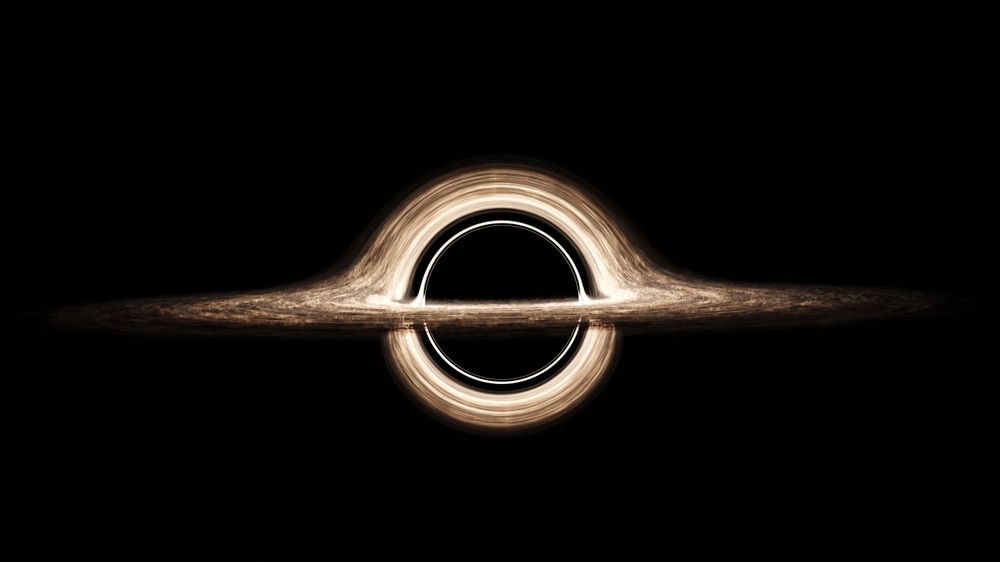In a recent scientific advancement, researchers have proposed a method to exploit Schwarzschild black holes as rechargeable energy sources, potentially revolutionizing our understanding and application of astrophysical phenomena in the realm of energy science.

Image Credit: IvaFoto/Shutterstock.com
The paper, currently hosted on arXiv and due to be published today in the journal Physical Review D, introduces a concept where up to 25% of mass input into a Schwarzschild black hole could be converted into electric energy, a significant leap in the field of high-energy astrophysics and energy conversion technologies.
The Schwarzschild black hole, a solution of Einstein's field equations in general relativity, represents an extreme region of spacetime where gravity is so intense that nothing, not even light, can escape. This paper leverages the strong gravitational forces of such black holes to propose a theoretical model for energy extraction and conversion. The study delves into the intricate physics of black holes, exploring how these celestial bodies, traditionally viewed as mere energy sinks, could be reimagined as potent energy sources.
In detailing the black hole's function as a rechargeable battery, the research focuses on key parameters like internal resistance, efficiency of discharging, maximum output power, cycle life, and the total amount of extractable energy. This approach is not only innovative in its application but also meticulously aligns with the established laws of black hole thermodynamics, particularly highlighting how the discharging process adheres to the second law of thermodynamics.
The paper further extends its exploration to the concept of a black hole acting as a nuclear reactor. It introduces an effective nuclear reaction process, where α particles (helium nuclei) interacting with a black hole lead to the generation of positrons, alongside the black hole itself. This process, according to the researchers, can transform 25% of the mass of α particles into kinetic energy of positrons, significantly amplifying the energy output compared to natural decay processes. Such a mechanism not only underscores the potential for high-energy yield but also suggests a method for energy amplification that was previously unexplored.
An intriguing aspect of this study is its implication for dark matter, particularly the role of tiny primordial black holes, which are hypothesized to be a significant component of dark matter. The research posits that these black-hole-originated dark matters could be harnessed as reactors, providing a new perspective on the interaction between astrophysical phenomena and practical energy solutions.
The proposed methodologies for recharging Schwarzschild black holes with minimal amounts of charge and their conversion into electric energy are particularly noteworthy. The study ensures that a substantial portion of input mass is converted into electric energy through processes that align with the fundamental principles of physics, while also being theoretically feasible.
In conclusion, this research not only challenges our conventional understanding of black holes but also opens up new horizons in energy science. By theorizing the use of Schwarzschild black holes as both efficient batteries and powerful nuclear reactors, it paves the way for potential future applications in energy supply. This blend of theoretical astrophysics with practical energy utilization offers a glimpse into an exciting era of cosmic-scale energy solutions, where the mysteries of the universe could be key to addressing some of the most pressing energy challenges on Earth.
Sources:
Mai, Z.-F. and Yang, R.-Q. (2023) Using black holes as rechargeable batteries and nuclear reactors, arXiv.org. Available at: https://arxiv.org/abs/2210.10587 (Accessed: 29 November 2023).
Physical review D - accepted paper: Black holes as rechargeable batteries and nuclear reactors. Available at: https://journals.aps.org/prd/accepted/9107fY1fSd013882195a99221344256f7a7e8b20d#
(Accessed: 29 November 2023).